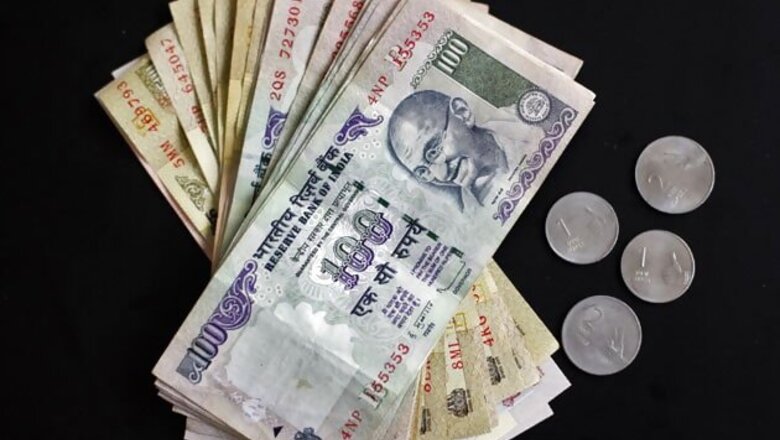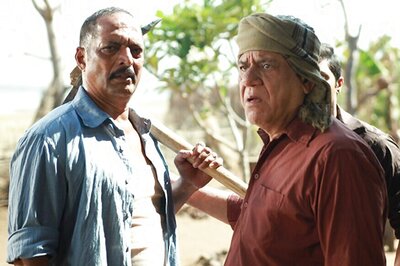
views
Bangalore: While Passport Seva Kendras have gone digital, officials verifying passport applicants are making hay, 100 by 100. City Express speaks to a few Bangaloreans and sheds some light on the loopholes in the system. Shailaja, a college student, says, “Few months ago, an official from the Basaveshwarnagar police station had come to my residence for police verification. After completing all formalities, he said ‘Madam coffee thindi’. It took me a while to understand what he was referring to. But, he continued to stand near the door and later asked for money. I hesitantly paid Rs 100. But he said that there is one more official waiting near the gate. Then I paid an extra Rs 100.” When asked why didn’t she complain about this, she says, “I didn’t know whom to complain to. I am sure everyone in the department knows about this.”
Narrating a similar experience, Princy Thomas, an MNC employee says, “I had applied for passport in October last year and I was called to the Kodigehalli police station after almost a month, for police verification. After asking me a couple of questions, the Inspector in charge said Kaas Kodi. I expected this and paid Rs 200 to him. I was apprehensive of complaining about this incident, as I didn’t want to invite trouble.”
Gone are the days, when at every step of applying the passport required, one had to shell money. With the surge in people travelling abroad due to various reasons, the malpractice in this important Government document has reduced dramatically. But loopholes do exist and the above mentioned experiences are of grave significance. It is not uncommon for police officials (who either ask the applicant to come to the respective police station or pay a visit to their residence) to demand a bribe, ranging anywhere between Rs 100 and Rs 500, as a matter of right! And, this amount, which can easily run into crores (considering the total 92 police stations in Bangalore), goes largely unaccounted for.
When we asked the RPO (Regional Passport Officer) Dr KJ Srinivasa, if they have received any complaints so far, he says, “The police report is extremely important for us to proceed with the applications. But, we do not have any stand on what the police is doing. We do not interfere because it’s a separate department. We only receive complaints on delay in police verification.”
The delay factor seems to have been addressed. Recently, the ministry of external affairs initiated a move in the city using the digital mode for police verification, paving way for applicants to get clearance from local police within 20 days of submitting their application. The trial run of the digital verification process has been a success at two police stations in Bangalore. The police is hopeful to implement the new system in all the 92 police stations within a month.
The time is further saved as with the new digital version, the process will require the digital verification form to reach a particular police station where it will automatically recognise the status of the applicant, whether he is involved in any criminal case or has no case against him by scanning the records automatically. So, while the delay in police verification could be addressed, the process will still require the police to physically verify the applicant and his residence. They will still ask for chai paani or coffee thindi, and the gullible applicant will have to shell our a few hundreds without making a hue and cry. No wonder, Anna Hazare’s stand against corruption is bracketed for Rs 1,000 and above.
Most applicants who shell out money to the police official, when asked for a bribe, don’t report the matter to the authority concerned or the lokayukta, though the public, of late, seemed to have been taken over by the crusade against corruption. And this matter is not taken seriously, considering the meager amount of money involved.
Too small a complaint for Lokayukta?
When City Express spoke to Lokayukta SP B K Shivashankar, he said that he can’t recall a single complaint against police officials demanding bribe during the police verification. He says, “Of course, we are not ruling out corruption there. But, we have not received any complaint either against a police officer-in-charge, constable or a head constable asking for money during the police verification, without which we can’t take any action. At least 70 per cent of the applicants pay a bribe of `100 to 200 to the official concerned, including the ‘educated’ ones. The bribe normally doesn’t exceed `500. People pay bribe to ensure smooth flow of their application. And the reason no one complains is the small amount of money involved and they also do not want to get entangled in the entire process and going to the court.”
He adds, “Such complaints are normally handled at the Police Commissionerate level. Either the errant will be punished/jailed under the Prevention of Corruption Act or disciplinary action will be taken and departmental enquiry will be conducted by the District Administration wherein he or she can also be sacked.”
But can the public complain to the Lokayukta on this? He says, “Of course, they can. Anyone can come to us and complain and immediately a trap will be laid.” Just because no one complains, does that mean that the officials in the Police Department do not try to make an extra buck?
Police not aware of the issue
A senior cop at the Commissionerate level, who didn’t want to be quoted, says, “We haven’t received complaints from the public on our officials demanding bribe. We do hear of delay in police verification and we are streamlining the procedure for the same. The Passport Act is a draconian Act and police needs to be very careful during the process since they have to check records of all the applicants to ensure that they do not have any criminal history. It is a manual process and hence time consuming. But, they can’t demand bribe for the same. Even the applicant shouldn’t be paying any money to them. In such a scenario, the complainant can immediately address the issue to any higher official, whether it’s ACP, DCP or the Additional Commissioner and the required action will be taken.” When City Express contacted Additional Commissioner (Law and Order) Sunil Kumar, he refused to comment on the same.


















Comments
0 comment